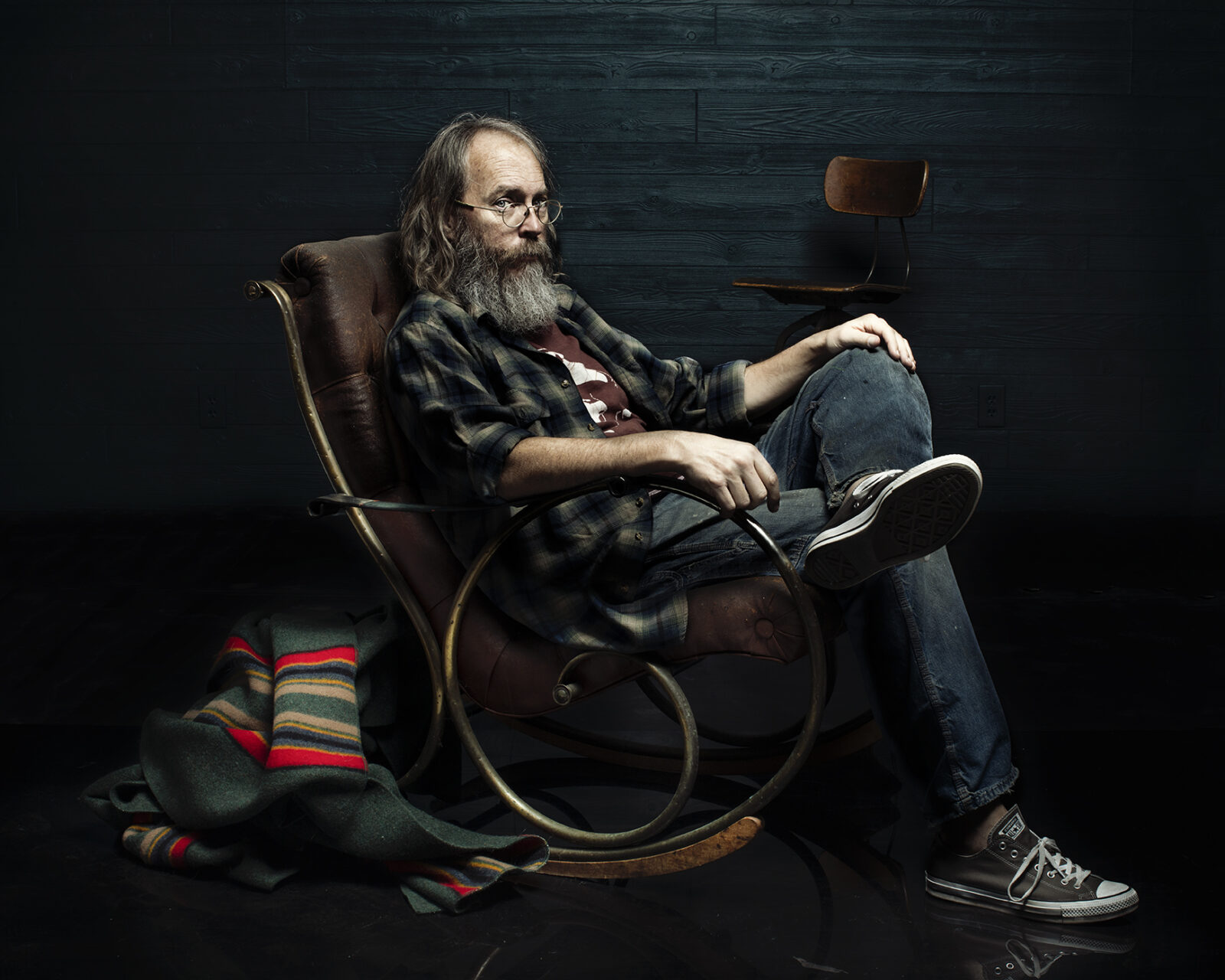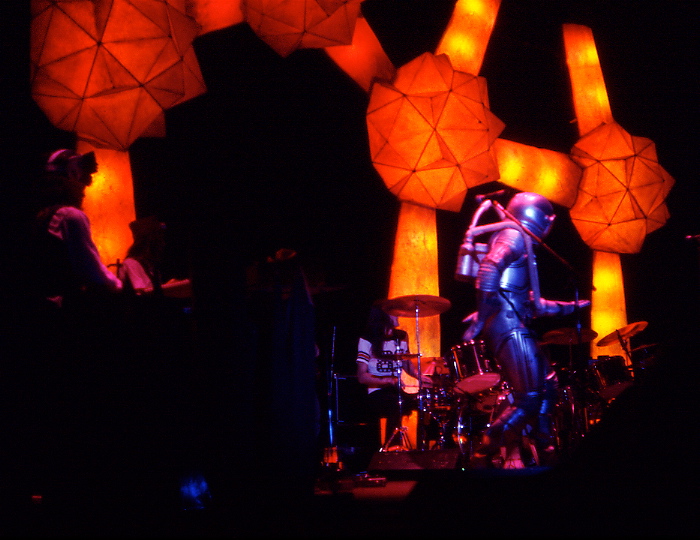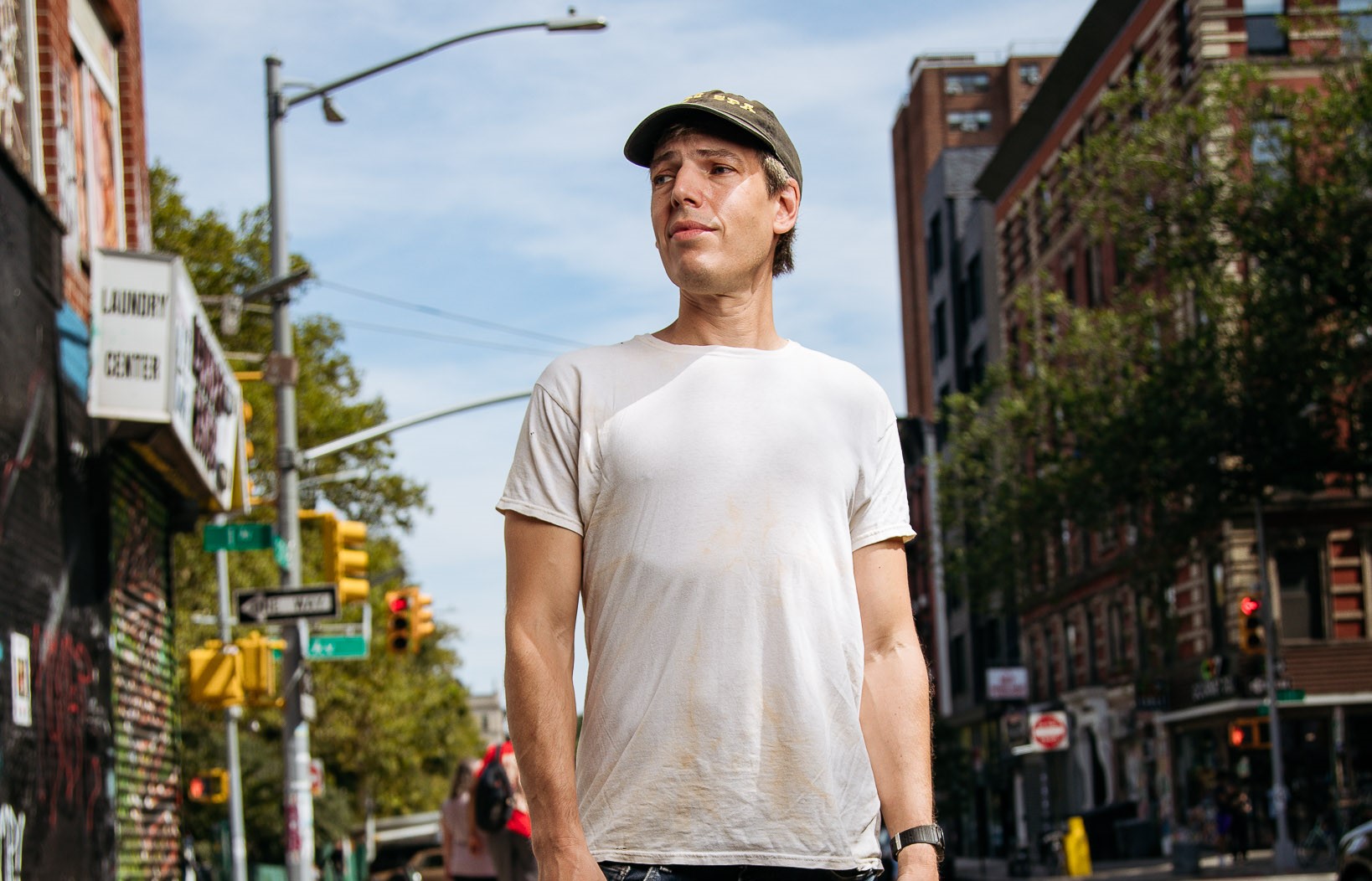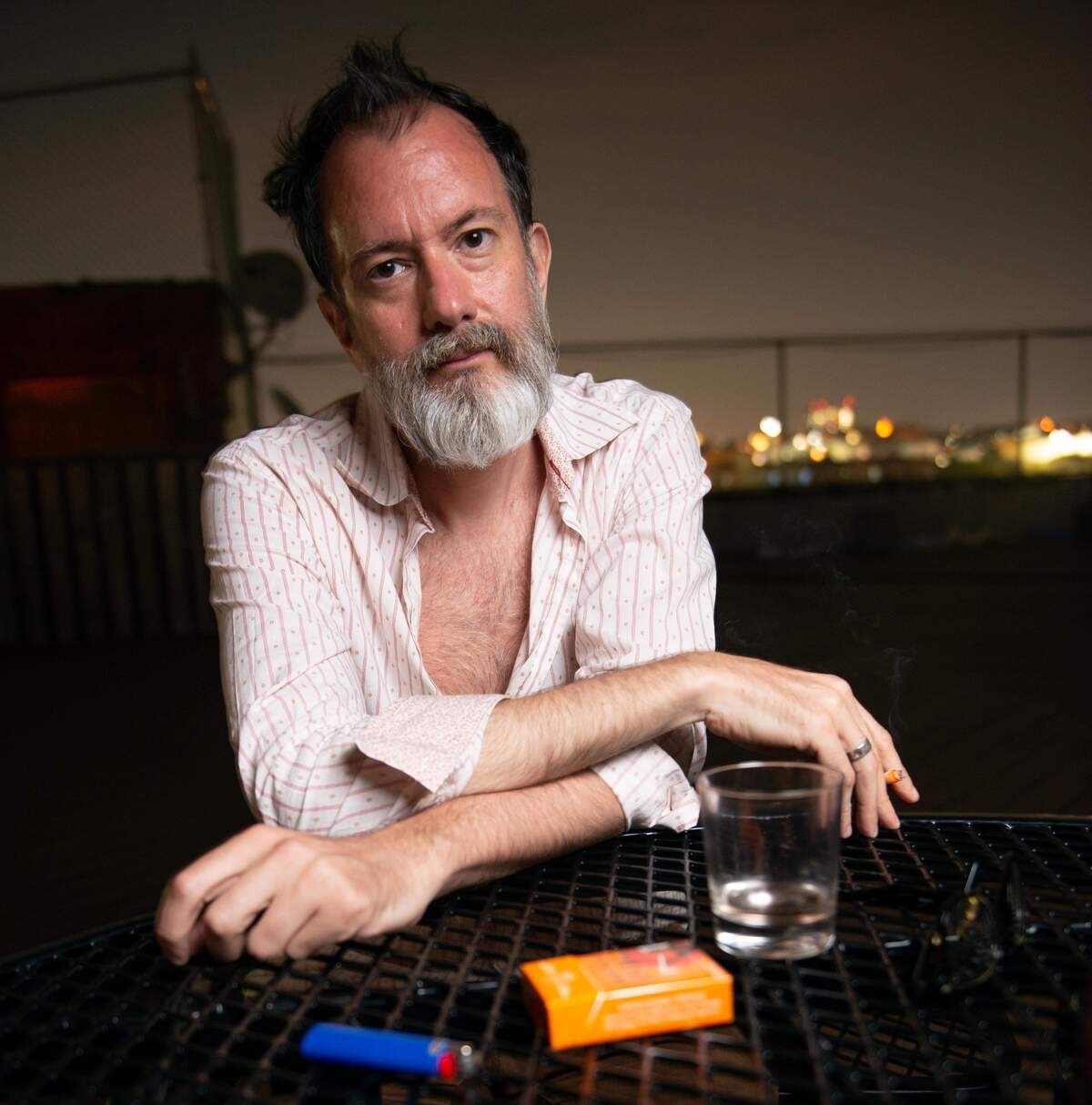Charlie Parr | Interview | “Songs are never finished”
Charlie Parr’s newest album, ‘Last of the Better Days Ahead,’ is a collection of powerful new songs about how one looks back on a life lived, as well as forward on what’s still to come.
Its spare production foregrounds Parr’s poetic lyricism, his expressive, gritty voice ringing clear over deft acoustic guitar playing that references folk and blues motifs in Parr’s own exploratory, idiosyncratic style. When it comes to what it all means, Parr says it best.
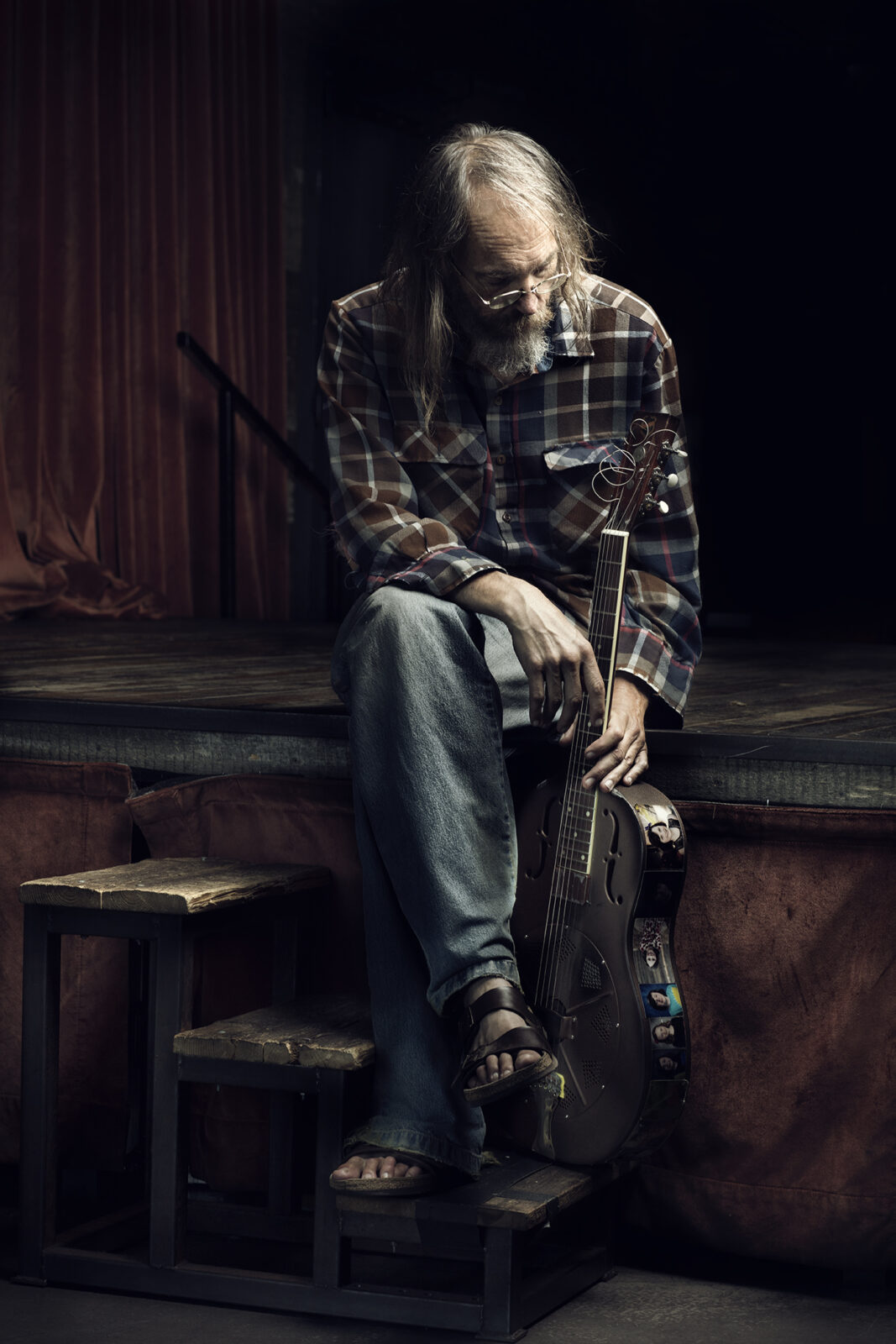
“Songs are never finished”
How are you coping with the current situation as an artist?
Charlie Parr: I’m coping just fine as an artist, but then I’m not sure that art requires commerce to be successful. I had a challenging year as a touring musician, but that’s not art, and to be honest once I got used to staying in one place for a spell I think my creative side really came alive. Now that I’m back on the road a little bit, I’m being very mindful to keep that side alive and well cared for.
It was very exciting to hear your latest album, ‘Last of the Better Days Ahead’ (out via Smithsonian Folkways). How long did you work on it?
I started writing it at the beginning of 2020, but most of the work was going on during lockdown. The actual recording only took about a day, but the songs are still in progress …
Do you come from a musical family?
My parents and my sister were fans, and we listened to music pretty much most of the time. My sister played a little piano but I’m the only one who really took to an instrument. Dad could sing really well and was a member of the local men’s chorus. But records played all the time, and ranged from the Carter Family to the Grateful Dead.
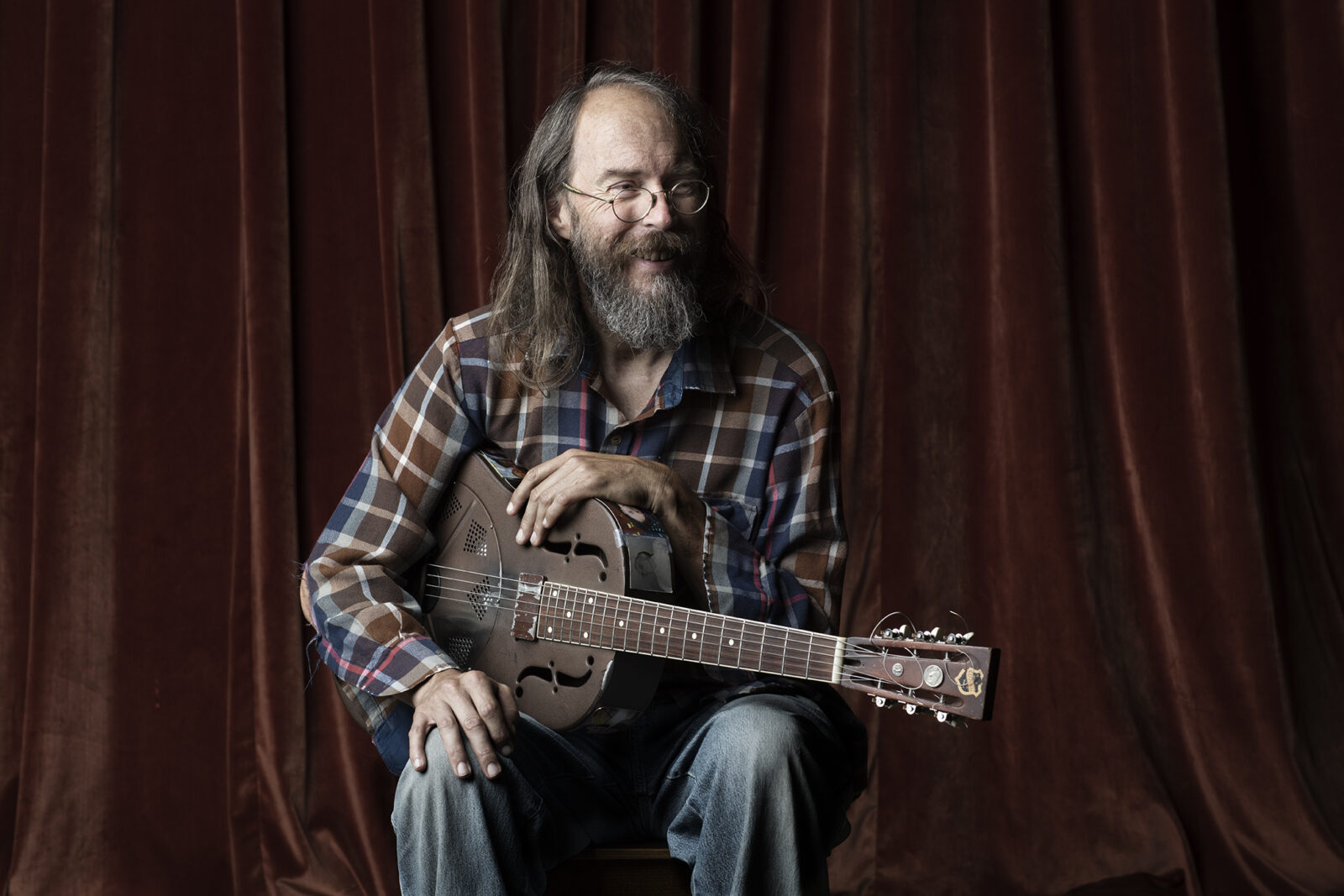
Do you discover new aspects of your songs developing in front of an audience?
Songs are never finished, and I definitely find that playing them to an audience brings a new dimension to them. Most of the songs that I wrote 20 years ago and still play at shows are songs that feel unfinished and seem to need the feedback of a live performance to continue on. Songs that feel finished rarely get played, unless I take them apart deliberately and reassemble them in a new way, which is something I do a lot too.
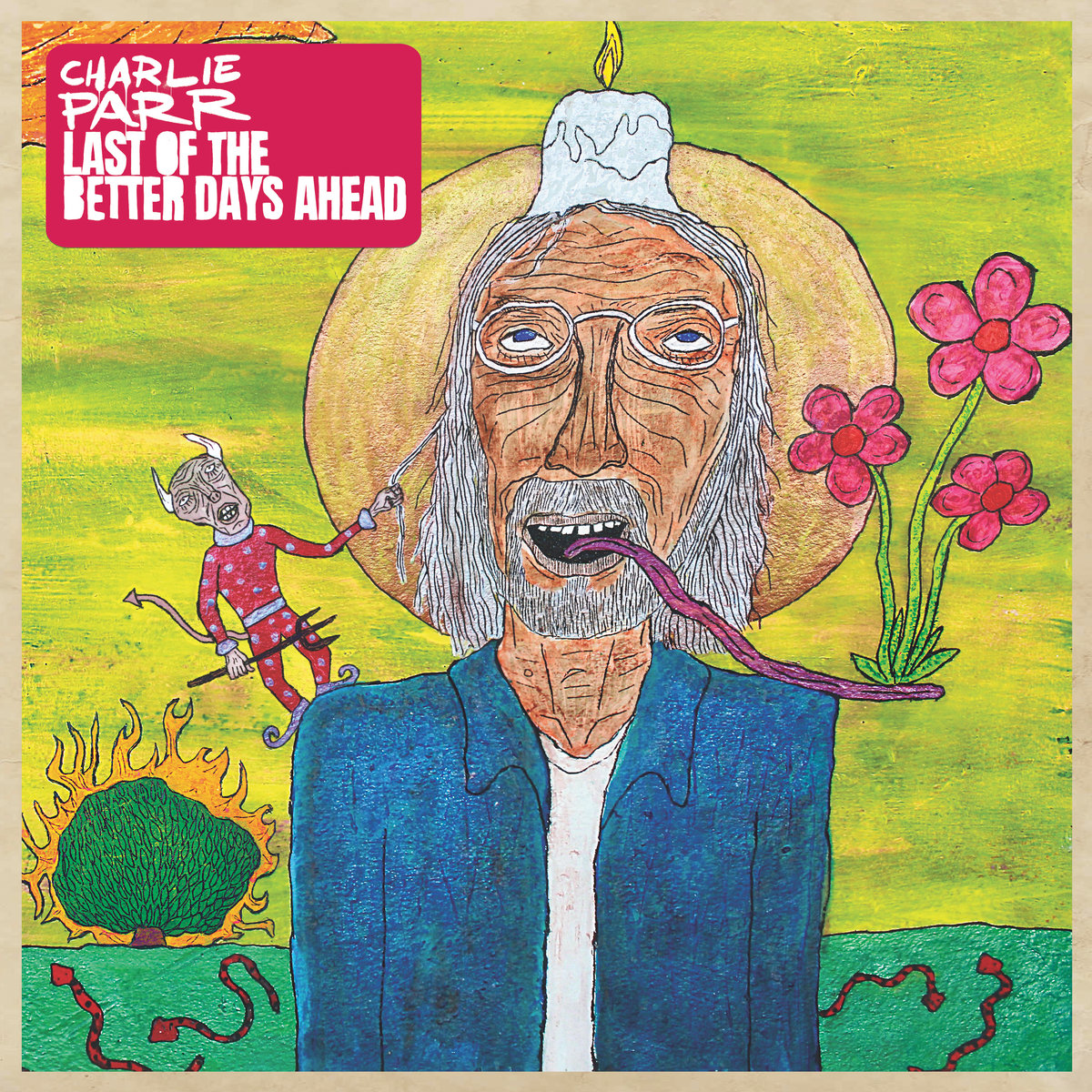
“Recordings are really only an impression of a song to me”
Is your material set in stone by the time you record, or is it an ever-evolving process? Were there any songs from your past that you revisit?
I guess I kind of just answered this one – yes, the thing about writing songs is that they’re fluid, like art you create over and over again. Recordings are really only an impression of a song to me, the real song only exists while it’s being played, and while it’s being played it’s being written all over again. Then after it’s over it just goes away again. All of the songs I’ve ever written are like this, even when they kind of establish themselves in a melody or tempo or key, they still feel kind of alive with potential, and are liable to get redesigned at any time even if only slightly.
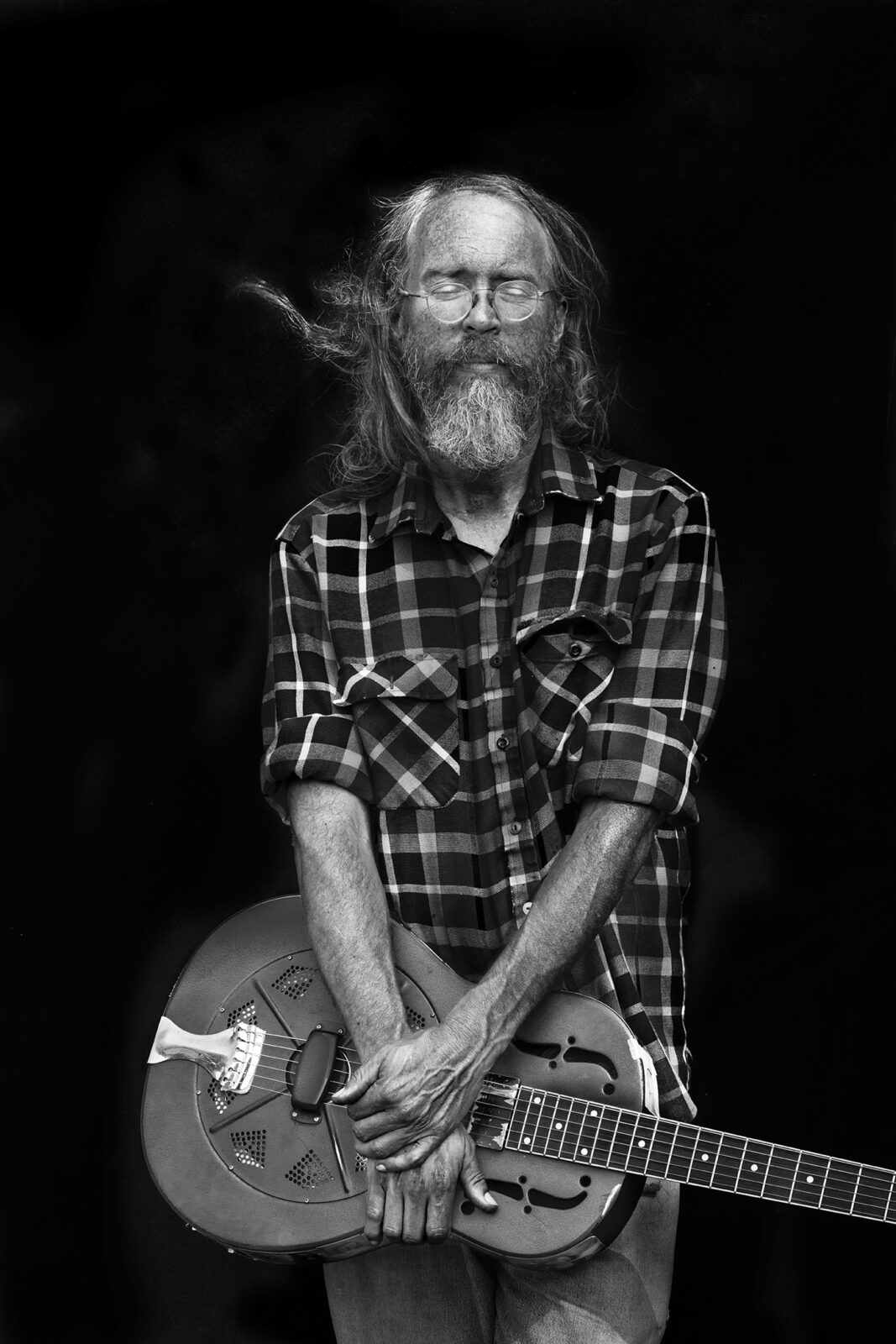
Have you ideas that refuse to step through the door with you? And what do you do with those sketches?
I have tons of ideas that I don’t have the talent to realize. I just keep putting in my hours, hoping to bring them along when I’m able to live up to their potential. Sometimes I try to record fragments or write stuff down but I know it won’t make sense later so I also just keep bringing them up during practice to see if I can get closer.
A peek into your creative process please. Do you find yourself to be a perfectionist, in control, or do your ideas lead you, taking on a life of their own?
I am not a perfectionist at all, in any aspect of my life. It’s important for me to keep practicing and attempting things that I’m not able to do, but along the way I find a lot of ideas that fit into where I’m currently at and I use those, as imperfect and deformed as they are – that’s how I am, there will be no perfect version of either my songs or myself, there will only be whatever there is at any given moment and I think it’s very important to to be able to say yes, I see the beauty in that even though it’s gone very crooked (or not crooked at all, since there is no measure and therefore no perfect example to look at).
Your body of work is very large. How would you rank your latest album in your discography? It has a bit of a different feel to it, maybe a bit nostalgic? Looking back and reflecting … Was there a particular mood you were trying to capture? A story you were trying to tell?
I like this latest album the best, I think it’s a true record and it’s just what it seems like it is. I’ve always wanted to be honest about what I could play and the things that I felt confident enough to say. This record is simply about these middle days, drifting and accepting that that’s what you’re doing and trying to see where you are first, rather than where you’re going or where you’ve been, even when it’s very bleak. I want to think that the other records were striving for this feeling of present-ness as well …
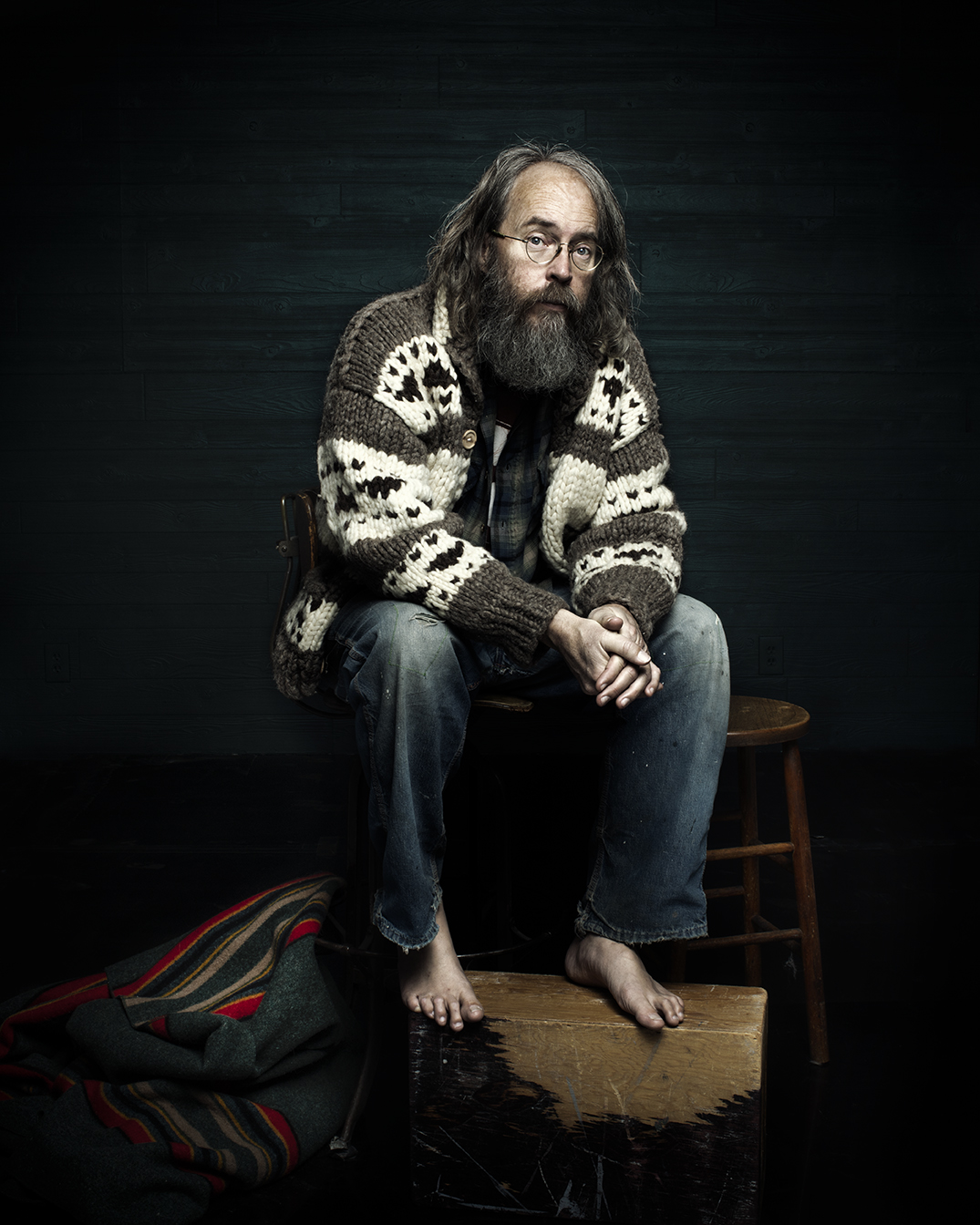
What do you want people to take away from the latest album?
If they take anything at all, that will be enough. The worst thing is when there’s nothing that anyone gets out of it. I hope someone gets something out of this.
What are some of the most important players that influenced your own style and what in particular did they employ in their playing that you liked?
The list of my influences is much too large to write down. I listen to music every day, and I try to listen to a lot of different things. The guitar players who have inspired me lately are Marisa Anderson, Chuck Johnson, Mdou Moctar, Bill Frisell, Jeff Parker, Bill Orcutt, Yasmin Williams, Jerry Garcia and always Memphis Minnie, Bukka White, Spider John Koerner, Robert Pete Williams and Mance Lipscomb … but that’s liable to shift and change often. The thing that I’m attracted to is a sense of purposefulness in someone’s playing, that feeling you get as a listener that this person means every note, every single sound is an intentional one. I want to be like that.
Piedmont Style is normally associated with the banjo, but it’s equally effective with the acoustic guitar, and there are a handful of people using this style with the electric guitar, which is something other-worldly to hear. Piedmont is characterized by approaching the finger picking in a manner where the thumb rides the bass strings, this supports the melody by picking the treble strings with the forefinger; and lends itself to delving into slide without much effort. Would you mind sharing a bit more details about Piedmont Style?
I’m not sure about Piedmont enough to really speak on it, I don’t actually play Piedmont style, even though that’s what I set out to play when I was young and trying to teach myself guitar by listening and playing along to Mance Lipscomb and Mississippi John Hurt records (neither artist is actually from the Piedmont region, and others who are from that area (Elizabeth Cotton, Gary Davis) were very idiosyncratic). By the time I had my style with me I had learned most things in a different way – then after I was diagnosed with Focal Dystonia my style changed again and was disrupted once again after my shoulder injury, so I’m a very poor example of Piedmont style or maybe any actual style. But then my models are ciphers (Spider John Koerner, for example, has an extremely unique style and is in a set all by himself). I’m not presuming to compare myself because I can’t, but just to show where my influences lie.
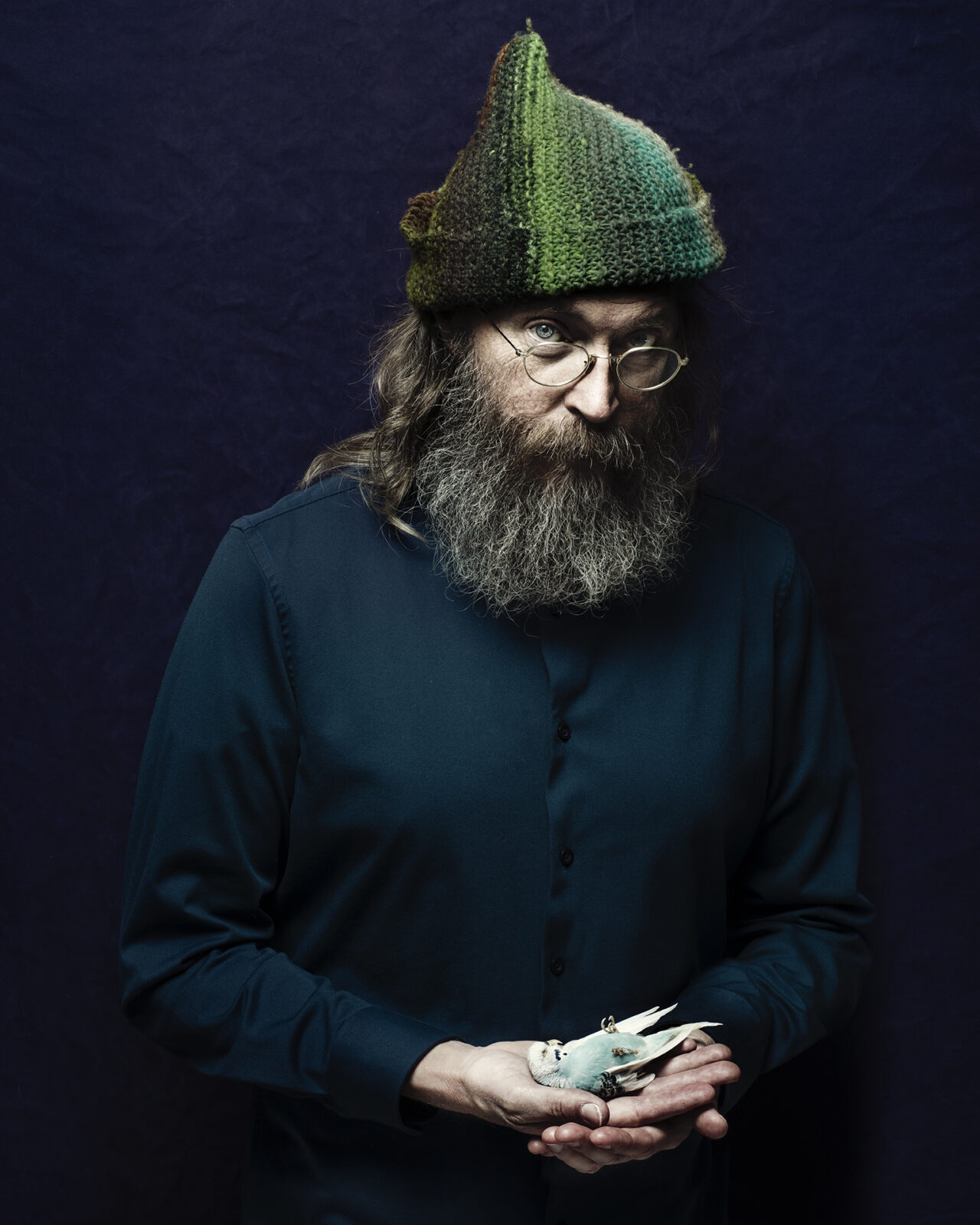
“I experiment with sounds and tunings, and love trying different guitars”
Your sound is truly astonishing, especially because it’s completely raw and honest. It feels like it’s captured on the road. How do you manage that?
I might have also answered this one above – but thank you for the compliment!! I let myself be influenced by a lot of different musicians and listen to a lot of non-guitar music and think about ways that I might fit the vibe I’m finding into what I can do. I practice whenever I can, preferably at least 90 minutes a day, or at least a little every day when I’m on the road and can’t sit for that long. I experiment with sounds and tunings, and love trying different guitars even though I’ll usually go back to my resonator – but often with a new sound in my head.
If you could collaborate with any other musician who would it be?
I’m not confident enough in my own abilities to really think I could collaborate with many but I suppose if I had the chance to play with Marisa Anderson, Bill Frisell, Nels Cline … I’d be scared witless.
Let’s end this interview with some of your favourite albums. Have you found something new lately you would like to recommend to our readers?
Marisa Anderson and William Tylers new record is amazing, Jeff Parker’s last record too – Karkhana’s last one … Jeffrey Alexander and the Heavy Lidders … Black Twig Pickers … Nathan Salsburg … it seems like every week there’s another record to listen to – I love Bandcamp …
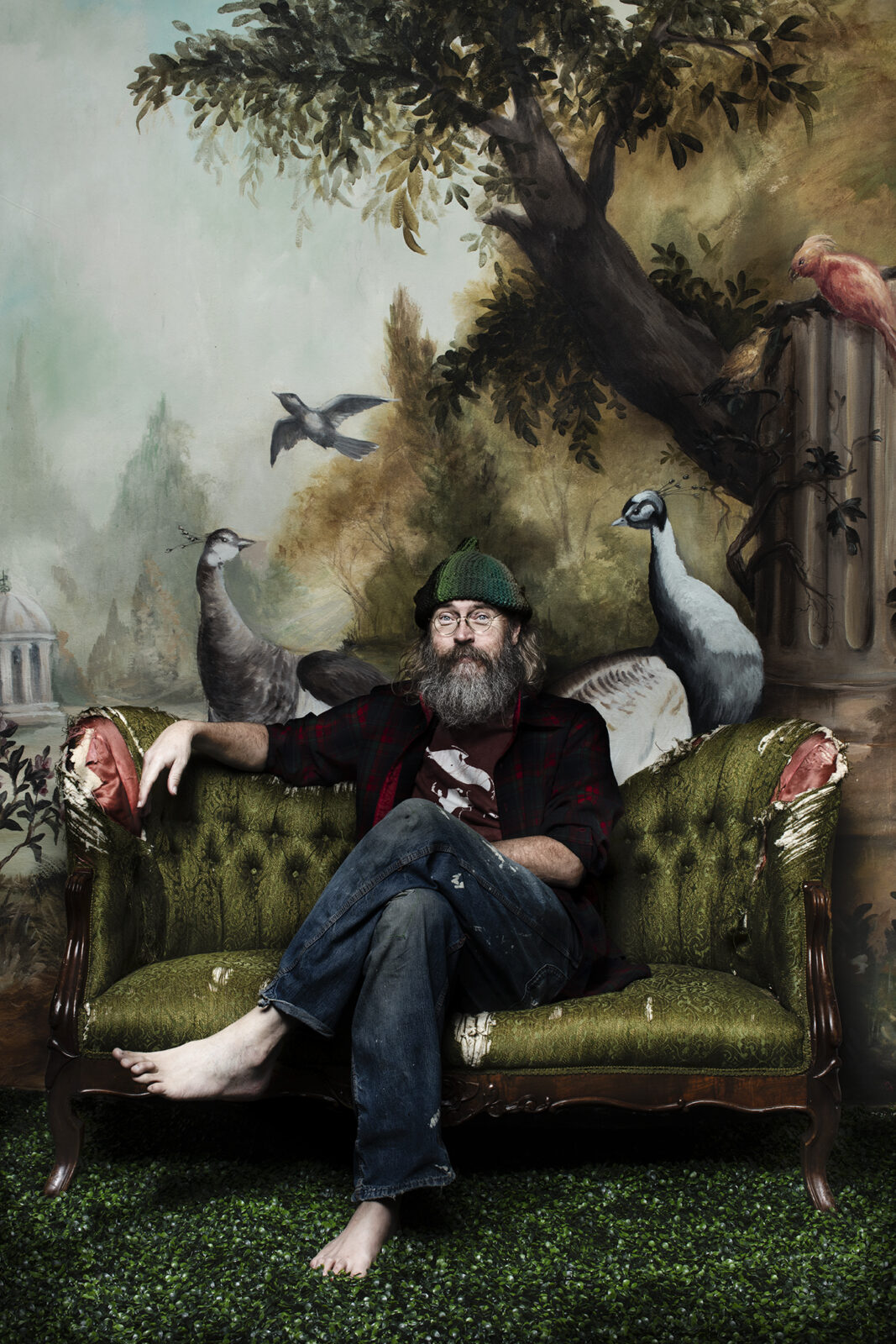
Thank you. Last word is yours.
Thank you!!
Klemen Breznikar
Charlie Parr Official Website / Facebook / Instagram / Twitter / Bandcamp
Smithsonian Folkways Official Website / Facebook / Instagram / Twitter / SoundCloud / YouTube / Bandcamp

